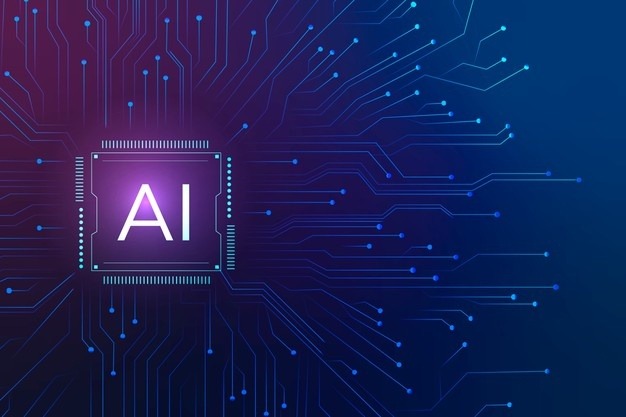
Artificial Intelligence (AI) agents are transformative tools that influence how businesses operate, innovate, and compete.
These intelligent systems, designed to mimic human decision-making and automate repetitive tasks, have revolutionized fields ranging from customer service to financial analytics.
Here are some tools behind AI agents, the secrets to their success, and their impact on modern enterprises.
AI Agents – Tools and Secrets to Drive Success

The Emergence of AI Agents
A Brief History
AI agents are not a futuristic concept but a reality integrated into everyday business operations. From early rule-based systems to today’s advanced learning algorithms, AI has come a long way.
The evolution began with simple expert systems in the 1970s and 1980s—programs designed to mimic human expertise in narrow tasks. Today’s agents leverage machine learning, natural language processing (NLP), and deep neural networks, enabling them to learn, adapt, and handle complex operations autonomously.

Defining AI Agents
AI agents are computer programs that interact with their environment, make data-based desicions, and take actions that enhance operational efficiency. They work on predefined parameters or through self-learning techniques using reinforcement learning to improve performance.
Whether embedded in chatbots or powering predictive analytics, AI agents are driving digital transformation across multiple sectors.
Tools Behind AI Agent Success
Successful AI implementation depends on a robust toolkit that supports development, deployment, and continuous improvement. Here are some of the core tools and frameworks that have enabled the rise of effective AI agents:

- Machine Learning Frameworks
Frameworks like TensorFlow and PyTorch provide the backbone for training AI models. These open-source libraries empower developers to build sophisticated algorithms that can learn from vast datasets.
They offer modular solutions, allowing for rapid prototyping and testing while reducing the time to market.
TensorFlow: Developed by Google, TensorFlow excels in large-scale numerical computations and supports research and production-level implementations.
PyTorch: Known for its ease of use, especially in academia, PyTorch is favored for its intuitive interface and dynamic computational graph, making it ideal for research and experimentation.

- Natural Language Processing (NLP)
NLP is a critical component when developing AI agents that interact with humans. Tools such as the Natural Language Toolkit (NLTK), spaCy, and Transformer-based models (like BERT and GPT) have simplified tasks like sentiment analysis, language translation, and chat interaction.
These tools help AI agents understand, interpret, and generate human-like language, they are essential for providing personalized and efficient service.
- Cloud Platforms and APIs
The rise of cloud computing has democratized access to high-powered computing resources, helping businesses to deploy AI agents at scale. AWS, Google Cloud, and Microsoft Azure offer AI-specific services such as machine learning platforms, speech recognition APIs, and computer vision APIs.
These services reduce infrastructure costs and enable seamless integration with existing systems.

- Data Analytics and Visualization Tools
AI agents often rely on real-time data analysis. Tools such as Tableau, Power BI, and specialized AI analytics platforms convert complex data sets into actionable insights. By combining AI with robust visualization, businesses can monitor performance, identify trends, and make data-driven decisions with clarity.
- Automation and Orchestration Software
Integrating AI agents into existing workflows requires automation tools that orchestrate how these agents interact with other systems. Robotic Process Automation (RPA) tools like UiPath, Automation Anywhere, and Blue Prism enable organizations to automate repetitive tasks.
These platforms, when coupled with AI, can handle high-volume transactions and ensure that processes are optimized and error-free.

Secrets to Driving Success with AI Agents
While the tools behind AI agents are powerful, unlocking their full potential requires careful planning, strategy, and management. Here are some critical secrets to leveraging AI agents successfully:
- Strategic Alignment with Business Goals
Successful adoption of AI agents begins with a clear alignment between AI initiatives and broader business objectives. Companies that have achieved success with AI typically start by identifying the pain points within their operations.

For example, customer service departments might deploy AI chatbots to handle routine inquiries, freeing human agents to more complex problems.
By ensuring that AI implementation addresses business needs, organizations can secure higher ROI and foster a culture of innovation.
- Continuous Learning and Adaptation
An advantage of AI agents is their ability to learn and evolve. Implementing a feedback loop mechanism is crucial for continuous improvement. This includes periodic retraining of models, incorporating user feedback, and updating the algorithms.
Organizations that commit to continual refinement can win their competitors.
- Data Governance and Quality
AI agents are as effective as the data they are fed. Ensuring high-quality, secure, and relevant data is critical to building reliable AI systems.

Best practices in data governance—such as regular audits, clear data lineage, and robust data management policies—help maintain data integrity and compliance with regulatory standards.
High-quality data enhances the performance of AI agents and minimizes the risks associated with biases and inaccuracies in decision-making.
- Cross-Functional Collaboration
The integration of AI agents within a company means collaboration with multiple departments. This cross-functional approach ensures that technical teams, data scientists, business analysts, and end-users work together to drive success.
Collaboration fosters an environment of shared learning and innovation, where insights from various perspectives lead to robust AI solutions.
- Ethical Considerations and Transparency
A component of AI success is ethical guidelines and transparency. Businesses must address issues related to privacy, security, and bias.

It is crucial to establish ethical frameworks and review protocols that govern the behavior of AI agents. Transparent communication about how AI is used within the organization builds trust with customers and stakeholders, and enhance brand reputation.
- Human-in-the-Loop Systems
Even the most advanced AI agents can benefit from human oversight. Integrating human expertise into AI processes—often referred to as “human-in-the-loop” (HITL)—ensures that systems can correct errors, handle exceptions, and learn from nuanced judgments that machines may not comprehend.
HITL systems maintain a balance between automation and human intuition, building an adaptive and reliable framework.
Real-World Applications of AI Agents
Enhancing Customer Experience
One of the most visible impacts of AI agents is in customer service. Intelligent chatbots and virtual assistants are transforming how businesses interact with their customers. These agents can handle routine queries, provide personalized recommendations, and process transactions in real-time.

By automating customer interactions, companies can reduce wait times, improve accuracy, and drive customer satisfaction.
Optimizing Operations
AI agents have an impact on operational efficiency. In supply chain management, for instance, AI-driven analytics can forecast demand, manage inventory, and optimize logistics.
This can help cost savings and enable companies to respond quickly to market changes. Similarly, in manufacturing, AI agents help predict maintenance needs, reduce downtime, and enhance safety protocols.
Driving Innovation in Finance
In the financial sector, AI agents are used for fraud detection, risk assessment, and algorithmic trading. These agents analyze market data and financial transactions at high speeds, identifying patterns that human analysts might miss.

By leveraging AI, financial institutions can manage risks more effectively and tap into new revenue streams.
Transforming Marketing Strategies
Marketing is another area where AI agents are making strides. By analyzing customer behavior, sentiment, and market trends, these agents generate insights that enable highly targeted campaigns and personalized content delivery.
AI agents also automate ad placements and optimize budgets in real time, ensuring that marketing strategies are efficient.
The Future: Trends and Emerging Opportunities
As AI agents evolve, emerging trends mean greater integration and sophistication. Edge computing, for example, promises faster processing and reduced latency, allowing AI agents to operate seamlessly in real-time environments.

Furthermore, the convergence of AI with emerging technologies such as augmented reality (AR) and virtual reality (VR) can create immersive experiences that redefine the boundaries of human-computer interaction.
Moreover, as the technology matures, we can expect AI agents to transcend traditional applications and integrate into emerging sectors such as personalized healthcare, smart cities, and autonomous vehicles.
Businesses can use these trends and invest in continuous innovation to create competitive advantages and solutions.
The strategic adoption of AI agents will reshape industries.

In summary, AI agents are not simply tools but powerful enablers that, when strategically integrated, offer a competitive edge in the pursuit of innovation and efficiency.
AI agents are challenging and rewarding; with the right tools and secrets success is not a possibility—it is an inevitability.
AI agents will be essential for businesses aiming to thrive in today’s digital economy.
You can use these AI agents to boost your business and drive growth and success.
AI Tools for You
https://www.bestprofitsonline.com/myblog/newai
Tip
How To Improve Your Social Media Marketing
